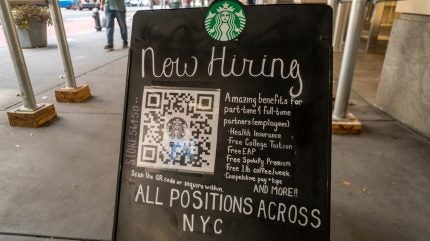
In the face of mounting challenges, retailers across the United States are finding it increasingly difficult to attract and retain staff.
The Retail Industry Leaders Association (RILA) recently highlighted that a new generation of workers is reshaping expectations and pushing for more meaningful engagement from employers.
“Young retail workers want more than a pay cheque,” said Evan Armstrong, Vice President of Workforce Policy at RILA. “They expect alignment with shared values and a sense that their work is respected and valued.”
This demand for mutual respect and clear communication has prompted retailers to rethink traditional methods of workforce engagement.
According to the 2023 Labor Activity in Retail report by IRI Consultants and RILA, retailers who succeed will be those who embrace genuine dialogue and policies that extend beyond financial incentives.
By promoting values that resonate with young employees, retailers can foster a culture of loyalty, reducing the high turnover rates that have historically plagued the industry.

US Tariffs are shifting - will you react or anticipate?
Don’t let policy changes catch you off guard. Stay proactive with real-time data and expert analysis.
By GlobalDataEmpowering employees with flexibility
A key concern for today’s retail workforce is the ability to exert greater control over their working conditions, including hours, schedules, and general autonomy.
The report underscores the point that, without such flexibility, younger employees feel disconnected and less motivated to stay long-term. “Retail workers today want to feel they have a voice,” remarked Armstrong. “They seek more say in their schedules and work environment, which empowers them and, in turn, boosts morale and productivity.”
High turnover in retail has often been accepted as inevitable, yet the industry is now urged to look beyond this assumption. By granting employees a degree of independence, retailers can improve both satisfaction and retention, ultimately leading to a more committed and efficient workforce.
Prioritising well-being and community engagement
Today’s retail employees not only seek fair compensation but also want to see genuine investment in their well-being and communities. The 2023 Labor Activity in Retail report suggests that companies prioritising wellness initiatives and community engagement enjoy stronger workforce loyalty.
Retailers can benefit from focusing on such areas, as employees feel a deeper connection to companies that show a commitment to their holistic welfare.
By integrating policies that support work-life balance and mental health, retailers can address a root cause of workforce dissatisfaction. As Armstrong observed, “For many employees, the workplace is more than just a job; it’s part of their social and community identity.
Retailers who understand and act on this are better positioned to retain top talent.” Through such strategic measures, the retail sector can not only address staffing challenges but also build a stable, motivated workforce aligned with the values of today’s younger generation.
Ultimately, the retail industry stands at a pivotal moment as it faces an evolving workforce with distinct expectations. Addressing these requires innovative policies that embrace shared values, provide autonomy, and prioritise well-being.
By adapting to these demands, retailers can cultivate a workforce that is both loyal and engaged, offering a sustainable solution to high turnover and ensuring future success in a competitive landscape.



